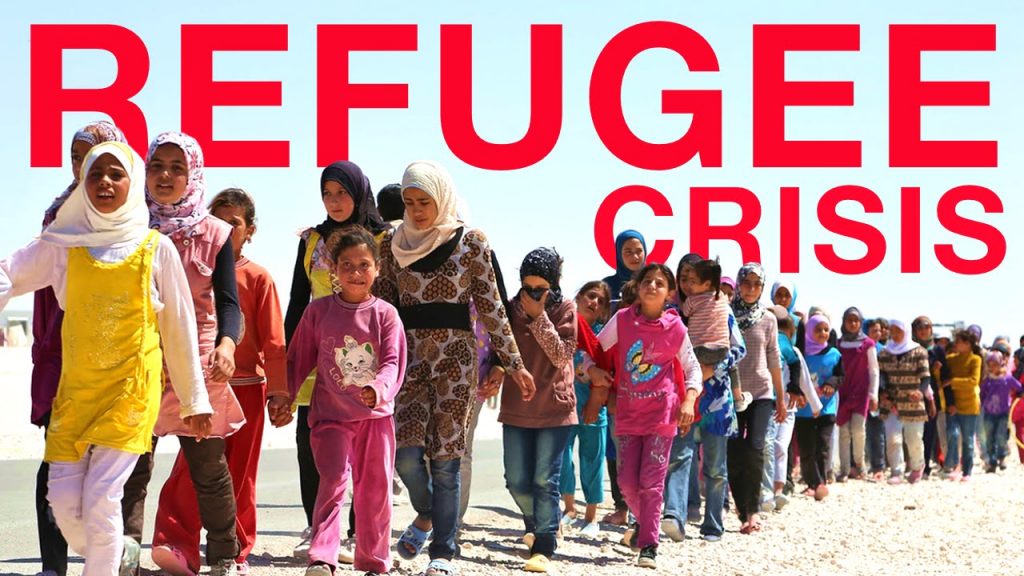Asylum applications in the European Union have surpassed 1.2 million in 2015, confirming that this is the biggest refugee crisis since the second world war and making the need for a more coordinated European response in all relevant policy areas immanent. Dozens of articles and research have been written upon the subject analyzed from different angles, we want in this case focus on the integration of refugees linked with the labour market. Beyond meeting the immediate needs of refugees and asylum seekers, in fact, it is essential to promote their active integration in host societies. Research suggests that early and effective labour market participation is a key aspect of the integration process and determining for the long-term economic impact of the recent crisis.

As European Union Experts we had the chance to participate in a series of panels and workshops organized by The European Economic and Social Committee in collaboration with the European Commission in Brussels on November the 6th, 2017. The conference was entitled “From crisis management to everyday practice – Lessons from integration of refugees for future labour market and policies” and brought together high officers of the European Union, academics, international organizations (es. UN and World Bank), national delegates from the member States but also employers, associations and civil society organizations dealing with refugees integration in the labour market. Main tasks of the initiative were (i)to take stock of the social response and the major refugee-related policy developments at Eu, national, regional and local level on labour market and social integration and determine what the lessons learned are and (ii) to discuss whether and how such developments and know-how change the ways and means of addressing other challenges across EU societies and labour markets, and if it is possible to transform short-term solutions into long term gains for our society and economy. Exchange of best practices and creation of a more comprehensive strategy were crucial points discussed.
A central element in the strategy showed by the EU Commission is the Action plan of third country nationals launched in June 2016 with the aim to invest resources and energy in integration policies, on the idea that this will contribute to make Europe a more prosperous, cohesive and inclusive society in the long run. A crucial point here is the need to implement policies in a traversal sense, involving different vulnerable or disadvantaged groups of people. In this regard, to address the integration of refugees as an integral part of our efforts to modernize and build inclusive social and labour market policies. It is in fact important to have in mind that the context matter and the same policy tool can be effective in one country but not in another one. For example, the Danish government provides granted salaries and benefits for the employers who hires refugees (similar approach as the other Scandinavian states) until 2019, but a similar initiative in Spain, where 17% of the population is unemployed, would have counter negative effects on the social stability, blowing on the rise of populistic movements.
An example of transversal initiative was given by VDAB, the Flemish public employment service, that is not offering a specific project for refugees, but it provides a general program for non-dutch speakers. The program can offer language training, which is, according to majority of the speakers, the very first and main problem that pops up when dealing with integration of third country nationalities in a different national labour market. Furthermore, the program provides different forms of contract such as educational internship, professional internship, individual/vocational training or vocational experience agreement that can offer a first step in the labour market financed by regional subsidies. Those instruments are not specifically for refugees but available for everyone.
Another element which was pointed out is the need for a more integrated service, based on the collaboration between different actors: civil society organizations, employment agencies, employers and institutions. Free main points of this strategy are innovation, mobilization and integration. Innovation includes the use of apps and new technological tools to identify skills, that together with language is the second biggest issue to be checked. Mobilization deals with the involvement of many different stakeholders in the process, from social partners to institutions and employers, while integration refers mostly to local authoritieswhich are regarded by the EU as the crucial institutional places were the most effective policies can be built. According to this thought the EU Commission is evaluating new ways to put funds directly available for municipalities and local authorities in future calls. On this regard an interesting experience was showed by the German employment agency of Hannover, that is offering services both to refugees and enterprises providing translation, recognition of documents and certificates together with all the bureaucratic documents related to work permits.
Last point regards those whose problem is not only the language but the lack of skills. In this case time to be included in the labour market is longer and it is also a higher cost in term of money, in fact, it would be necessary to organize trainings. For these reason, it is fundamental to implement inclusive policies, involving different groups of people and putting at disposal contract forms, such as apprenticeship, that can be available for everyone.
The conference gave in this sense a lot of positive input for the implementation and exchange of good practices, with the aim to create a fairer chance to enter the labour market for all the groups that experience “social exclusion”, being aware that the cost for society would definitely be higher in case of failure of a correct integration policy.
By: Flavio Previtali
Visits: 288

